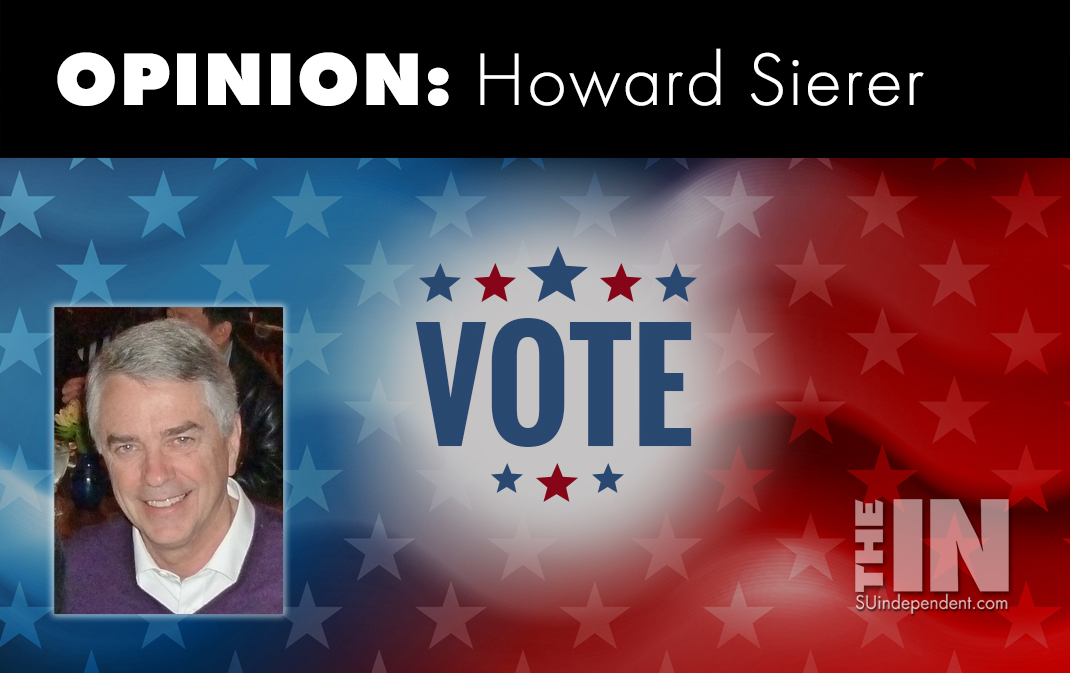
Make Voting Easy but Hard to Cheat
– By Howard Sierer –
Are American voting rights under attack? Is our democracy in jeopardy?
You’d think so if you agreed with a Biden speech delivered at an NAACP meeting held in Georgia. Referring to the state’s voter ID law, he “labeled it a Jim Crow-era tactic that would suppress the minority vote.”
Biden’s claim above was made in 2012 and was debunked that summer by Atlanta’s leading newspaper, The Atlanta Journal-Constitution, in an article entitled “Despite voter ID law, minority turnout up in Georgia.”
Biden renewed his discredited voter-suppression claims again this year, calling Georgia’s 2021 voting law “Jim Crow in the 21st Century” and likening any who oppose him to segregationists George Wallace and Bull Connor. Biden’s recent speech was widely criticized and produced a backlash from across the political spectrum.
His claims are contradicted by Census Bureau data which show that voter turnout percentages in Georgia have increased for all races and ethnic groups since its 2006 voting law changes; 2020 black turnout returned to that of the two Obama elections in 2008 and 2012.
Biden and Democrats who echo his patently false claims should pay more attention to what voters in Georgia and around the country want. Per a January Rasmussen poll, an overwhelming 84% of voters believe that the goal of election reform should be to create a system where it is “easy to vote and hard to cheat.”
As might be expected, Rasmussen’s poll reports that 73% of Republicans think making it harder to cheat should be the top goal while 67% of Democrats prioritize making voting easier. Forty-eight percent of independent voters favor making it hard to cheat while 35% think the focus should be on making it easier to vote.
But of more interest to me, another Rasmussen poll shows that 80% of voters favor requiring voters to show a photo ID prior to voting, a percentage that includes 65% of black voters. And an even higher 85% favor states cleaning up voter registration lists by removing people who have died or have moved.
Clearly, many Democrats and independents see eye-to-eye with Republicans on these straightforward methods to make cheating more difficult. Yet Democratic politicians, out of step with voters, continue to call both these actions racist, decrying them as Republican attempts to disenfranchise minority voters. What Democrats call Republican “voting restrictions” in some states are what Republican’s call “making it hard to cheat.”
As a practical matter, most new state voting laws are codifying voting changes put into place on an ad hoc basis in 2020 during the height of the pandemic. A number of states allowed voting practices in 2020 – for example expanded absentee voting and voting drop boxes – that either contradicted state constitutions or laws or were not explicitly permitted by state law.
States acted in 2021 to prescribe which of these ad hoc practices their states should adopt on a permanent basis. In almost all cases, the new laws are more permissive than they were in 2018, a year when Democrats reclaimed the House.
But in states where they are modestly less permissive than 2020’s free-for-all but still more permissive than 2018, progressives are whining, making Georgia’s 2021 law their poster child. Was our democracy threatened in 2018 when Democrats recaptured the House? Why weren’t Democrats wringing their hands then?
The Democrats’ proposed new federal voting legislation, currently on hold, is long on making voting easier and as a consequence, making it easier to cheat. Three proposed Democratic federal requirements caught my eye.
First, all states would be required to use so-called “independent” Congressional redistricting commissions. The concept of independent, non-partisan redistricting commissions is appealing but in practice, they are always riven with partisan dissension.
When a state’s redistricting commission deadlocks as it did this year in New York, redistricting reverts to the state legislature. The results shocked even the reliably-leftwing New York Times that called the state’s new Congressional districts “A Master Class in Gerrymandering, This Time Led by N.Y. Democrats.” Illinois wasn’t any better.
The second jaw-dropping Democratic proposal is to re-enfranchise hordes of convicted felons. While mouthing niceties about convicts’ debts having been paid to society, Democrats know that convicted felons would be a reliable source of Democratic votes nationwide.
Finally, the proposed law would create a system of public financing for congressional candidates that would match donations under $200 with six times the donation amount if candidates agreed to rules that would include not accepting donations over $1,000. Once enacted, this provision would morph into reelection guarantee funds for incumbents as current lawmakers found ways to skew the system to their advantage.
My advice to all of our elected officials is to listen to the overwhelming voices of your constituents: make it hard to cheat and then, when that is accomplished, look for ways to make voting easy.



